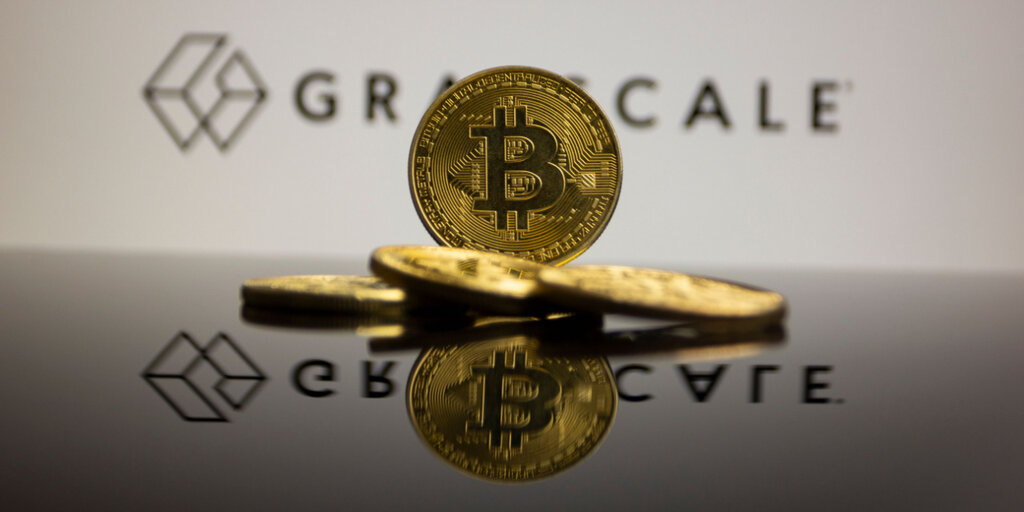The price of Bitcoin surged this week, touching highs not seen since the 2021 bull run. But will it last?
News has dropped that a U.S. bankruptcy judge granted bankrupt crypto lender Genesis permission to sell $1.6 billion in Grayscale Bitcoin Trust (GBTC) shares. The idea is to pay back creditors waiting on their cash since the lender went bust.
Just last month, the pressure from Grayscale flogging huge amounts of crypto to its custodian, Coinbase, led to a plunge in the price of BTC.
So it’s only natural to wonder if, when Genesis finally does sell, the same thing would happen again.
“There is at least $1.4 billion worth of selling coming from GBTC based on the Genesis bankruptcy and the situation with Gemini, possibly more,” affirmed James Seyffart, business intelligence analyst with Bloomberg, to Decrypt. “But we also don’t know how much was already sold.”
First, some background: Genesis is a subsidiary of Digital Currency Group (DCG) which used to allow people to earn interest on their crypto.
It filed for bankruptcy one year ago, revealing exposure to collapsed crypto venture fund Three Arrows Capital. After crypto megabrand FTX went bust in 2022, Genesis eventually froze customer withdrawals.
Creditors are still waiting on the cash they had locked into the product, and DCG has said creditors will be made whole. The plan approved by a judge this week will allow it to repay creditors.
Experts don’t think the price of Bitcoin will be hit as hard, though.
“I personally don’t expect the buying of [iBitcoin Trust shares] to continue like this for the rest of the year, but at the same time, if you asked me a couple weeks ago, I wouldn’t have expected the flows to be as strong as they have been,” Seyffart said. “It’s anyone’s guess, but the entire group of Bitcoin ETFs—namely the newborn nine—have had an extremely successful first month.”
Bloomberg ETF expert Eric Balchunas told Decrypt that although it was possible the Genesis selling could have a negative impact, the ETFs have “showed off some real power,” which might prevent a big BTC sell-off.
After a decade of denying spot Bitcoin ETFs, the Securities and Exchange Commission in January approved 10 products. They started trading on January 11 and have been a roaring success, collecting billions in assets under management.
“The level of liquidity and resilience we have seen in Bitcoin over recent weeks is a testament to the high level of demand in the market,” blockchain data firm Arkham Intelligence’s CEO, Miguel Morel, said.
He added that he didn’t “expect [the Genesis news] to impact too much further beyond what we’ve already seen.”
Finally, Julio Moreno—head of research at on-chain and market data analytics firm CryptoQuant—agreed that “higher Bitcoin demand from Bitcoin ETFs” is more than enough to mitigate any downward pressure.
“It can be bearish for price at the margin—indeed, we saw price declining 5% the day FTX sold $1 billion worth of GBTC shares,” Moreno told Decrypt. “However, the impact may be limited given [that] the market is already expecting this selling.”
CryptoQuant data also shows relatively low unrealized profits for short-term Bitcoin holders, which could also indicate low selling pressure, he added.
Edited by Ryan Ozawa.
Stay on top of crypto news, get daily updates in your inbox.
